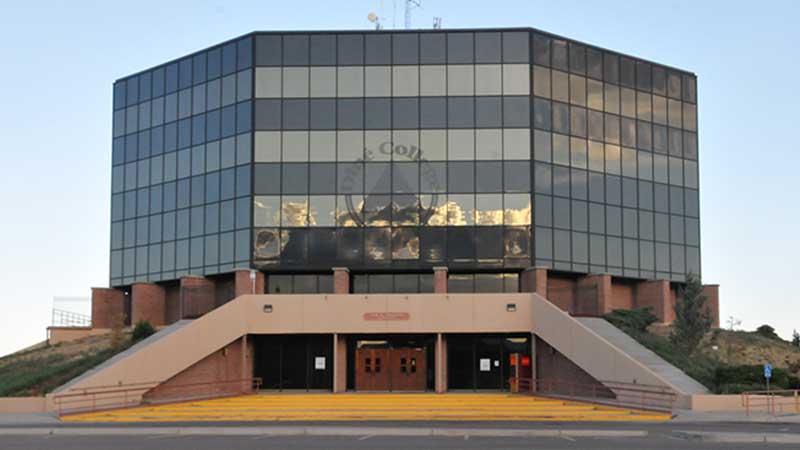
- Details
- By Native News Online Staff
TSAILE, Ariz. — In an attempt to remain competitive in the job market, Diné College increased its minimum wage to $15 an hour for regular full-time employees. The decision impacts more than two thirds of the college’s workforce of 276 individuals.
The increase comes as the federal government and Navajo Nation have a minimum wage of $7.25 an hour.
The minimum increase has been in the works since the beginning of 2021, according to Diné College President Charles “Monty” Roessel.
“At the beginning of this year, the administration vowed to do something about it. We committed to raising the minimum wage to $15 per hour,” Roessel said. “In order to practice our mission and philosophy, we must start with honoring the employees that make this college.”
Diné College is a four-year tribal college located on the Navajo reservation with six campuses and two microsites across Arizona, New Mexico, and Utah and primarily serves Navajo students.
With the increase in minimum wage, the college will also have increased expectations for employees that will include updating job descriptions and re-envisioning performance evaluations that align with the College’s four Core Institutional Values to achieve the mission and vision of the College. These are:
T’áá hó ájít’éego: Excellence and self-initiative in problem-solving, compassion, setting clear goals, and establishing positive working relationships.
Ahił na’anish: Cooperating and helping one another, keeping all employees well informed, using proper language for communication, respecting one another on equal terms, and honoring K’é.
Ił ídlí: Respecting the cultural, racial, and gender diversity of the Diné People, maintaining safe, courteous, respectful, and positive learning environments, and valuing inclusiveness.
Ił ééhózin: Understanding, thoughtfulness, competence, confidence, conscientiousness, and reflectivity for serving the needs of the Diné People.
“Diné College is in the process of transforming who we are and what we offer. I want all of you to know that we are excited to meet this new future together and with the mutual respect needed to meet our aspirations,” Roessel said.
More Stories Like This
Bard College Center for Indigenous Studies (CfIS) Hosts Annual Symposium With Keynote Speaker Miranda Belarde-Lewis on March 9–10American Indian College Fund Announces Spring 2026 Faculty Fellow Cohort
Navajo Nation Signs $19 Million Diné Higher Education Grant Fund Act into Law
Dr. Shelly C. Lowe to Be Inaugurated as IAIA President March 26–27
Tlingit Language Courses Expand for Students to Learn With Families At-Home
Help us defend tribal sovereignty.
At Native News Online, our mission is rooted in telling the stories that strengthen sovereignty and uplift Indigenous voices — not just at year’s end, but every single day.
Because of your generosity last year, we were able to keep our reporters on the ground in tribal communities, at national gatherings and in the halls of Congress — covering the issues that matter most to Indian Country: sovereignty, culture, education, health and economic opportunity.
That support sustained us through a tough year in 2025. Now, as we look to the year ahead, we need your help right now to ensure warrior journalism remains strong — reporting that defends tribal sovereignty, amplifies Native truth, and holds power accountable.
 The stakes couldn't be higher. Your support keeps Native voices heard, Native stories told and Native sovereignty defended.
The stakes couldn't be higher. Your support keeps Native voices heard, Native stories told and Native sovereignty defended.
Stand with Warrior Journalism today.
Levi Rickert (Potawatomi), Editor & Publisher

